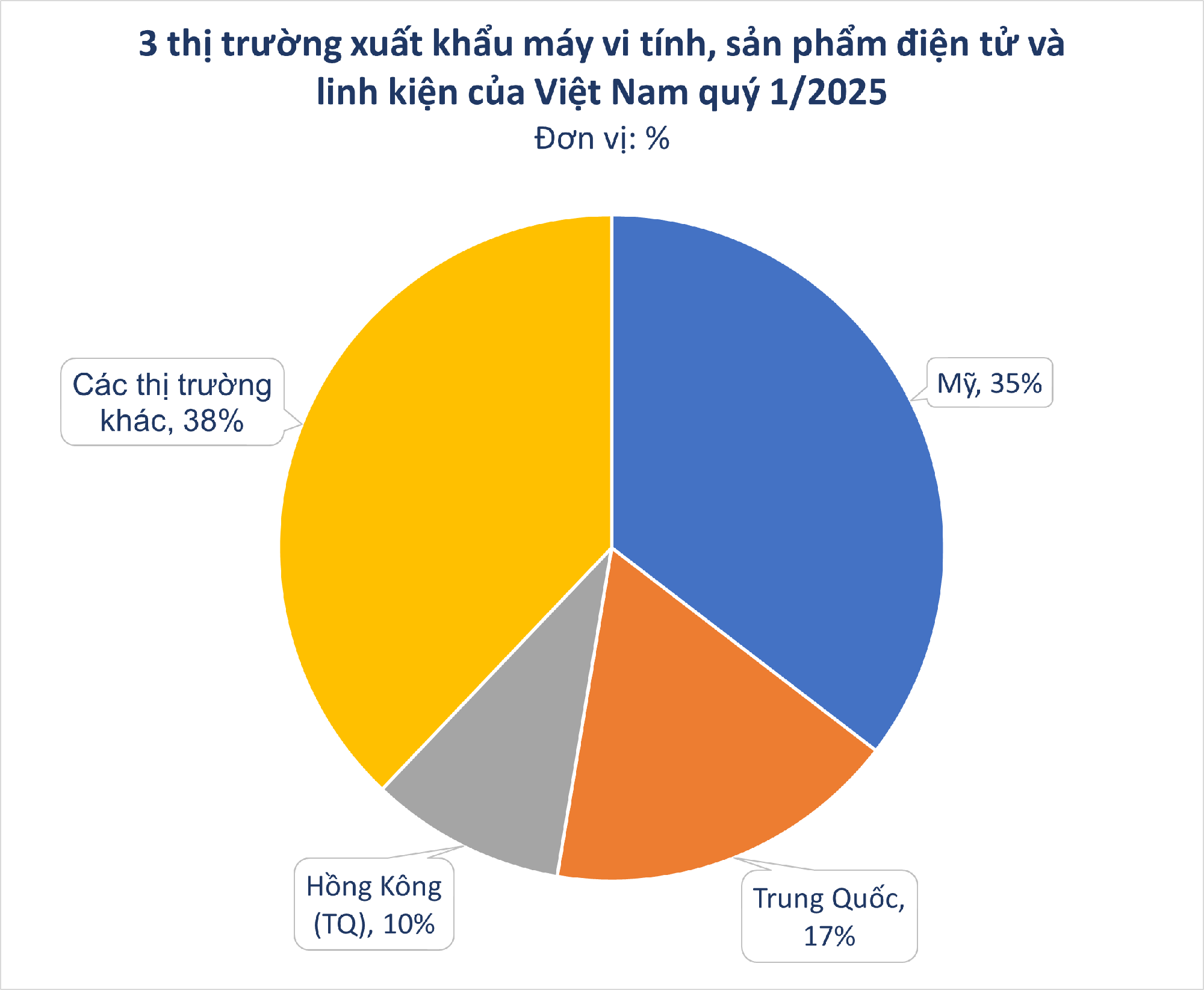![]()
The U.S. is now the largest export market for Vietnam in this multi-billion-dollar sector.
According to preliminary data from the General Department of Customs, Vietnam’s exports of computers, electronic products, and components earned more than $8.5 billion in February, up 32.4% compared to the previous month.
By the end of the first quarter, this group had the highest export value among all of Vietnam’s export categories, reaching $21.1 billion — an increase of 29.2% compared to the same period last year.
In terms of markets, the U.S. is Vietnam’s largest export destination for this category. Over the first three months of the year, exports to the U.S. totaled more than $7.4 billion, up 48.2% compared to the same period in 2024. This category also accounted for the largest share of all products exported to the U.S., making up 23.8% of the total export volume.

Vietnam’s exports to the U.S. over the first three months of 2025 reached more than $31.3 billion, up 21.8% year-over-year.
Currently, over half of Vietnam’s export value to the U.S. consists of high-tech products (consumer electronics, smartphones), along with garments, footwear, and other products like furniture and agricultural goods. In 2024, computers, electronic products, and components led the way, generating over $23.2 billion and accounting for 19.4% of total export value.
Notably, on the night of April 11 (Washington time), the administration of U.S. President Donald Trump officially removed smartphones, computers, and other electronic devices from the list of goods subject to retaliatory tariffs. The announcement came from U.S. Customs and Border Protection, the agency responsible for tax collection.
Under this change, smartphones, certain types of computers, hard drives, computer chips, and memory chips will be exempt from retaliatory tariffs. Products manufactured in China will also avoid the tariffs of up to 125% that the U.S. government has imposed on goods from the world’s second-largest economy. These core products are hardly manufactured within the U.S., and building domestic production lines for them would take years and substantial investment.
The U.S. adjustment has provided relief for many businesses. Apple currently manufactures around 80% of its iPhones in China, while Samsung operates factories across the globe. Both companies have production and assembly lines in Vietnam.
However, analysts warn that this tariff exemption may only be temporary. This current exemption is mainly intended to avoid overlapping tariffs, but it leaves open the possibility that these products may soon face new, albeit lower, tariffs — particularly on Chinese goods.
Three days ago, Donald Trump announced a 90-day delay on retaliatory tariffs for dozens of major trading partners, temporarily reducing the tariff rate to 10%, which includes Vietnam.
Source: Khánh Vy – An ninh tiền tệ
